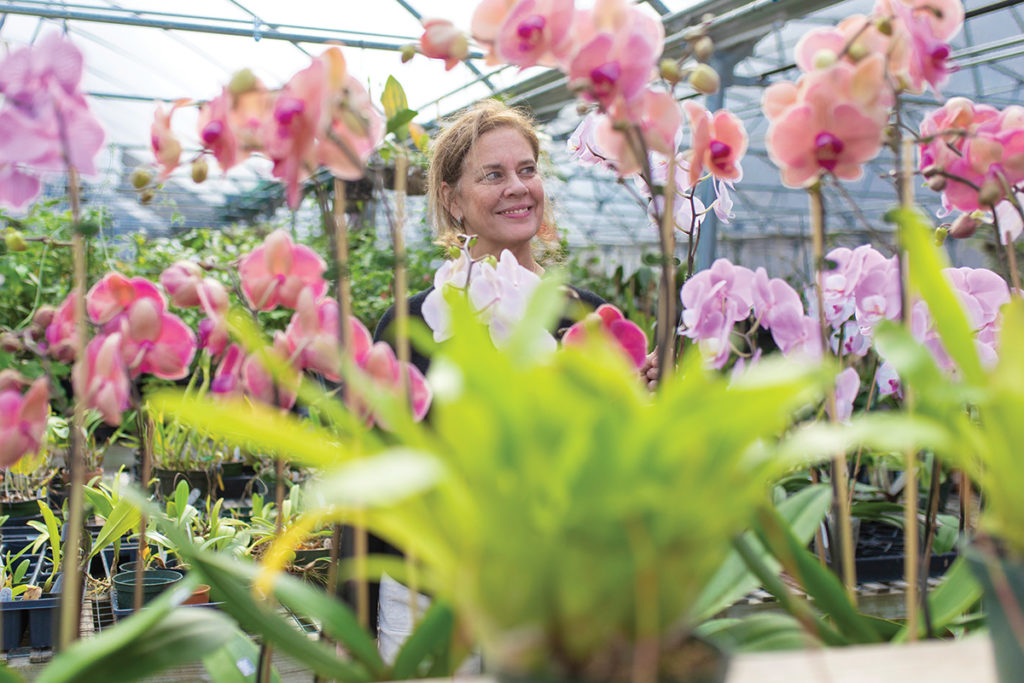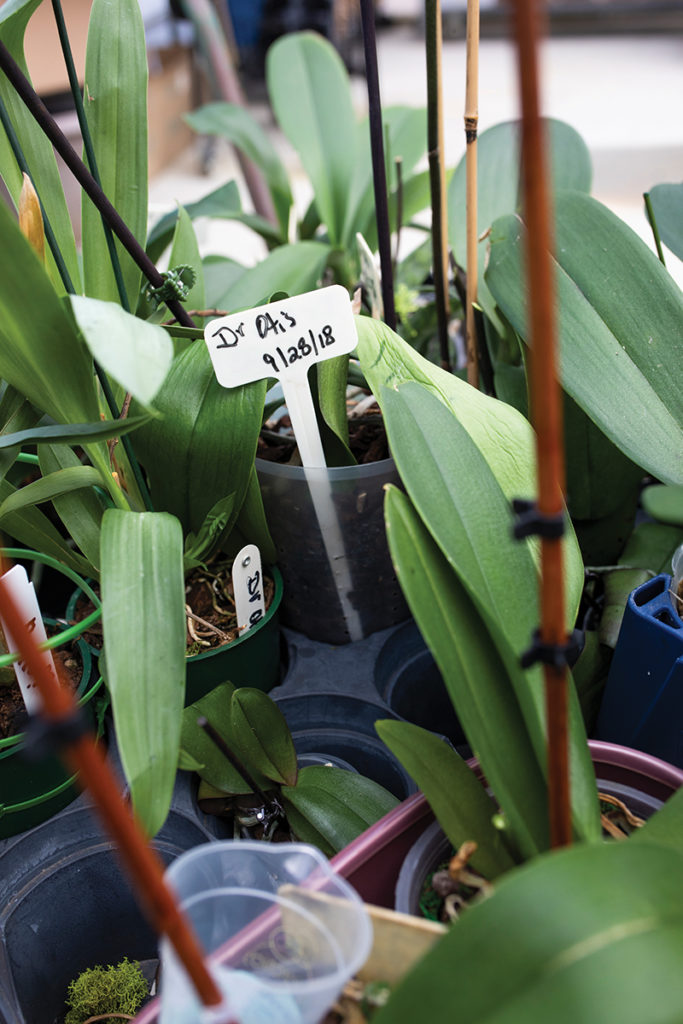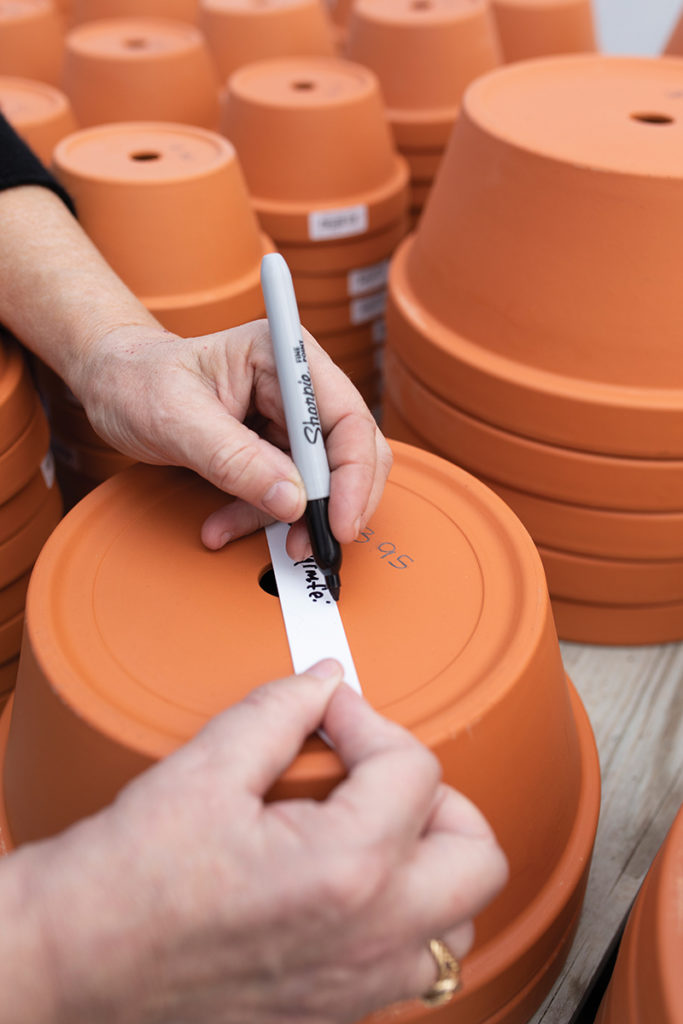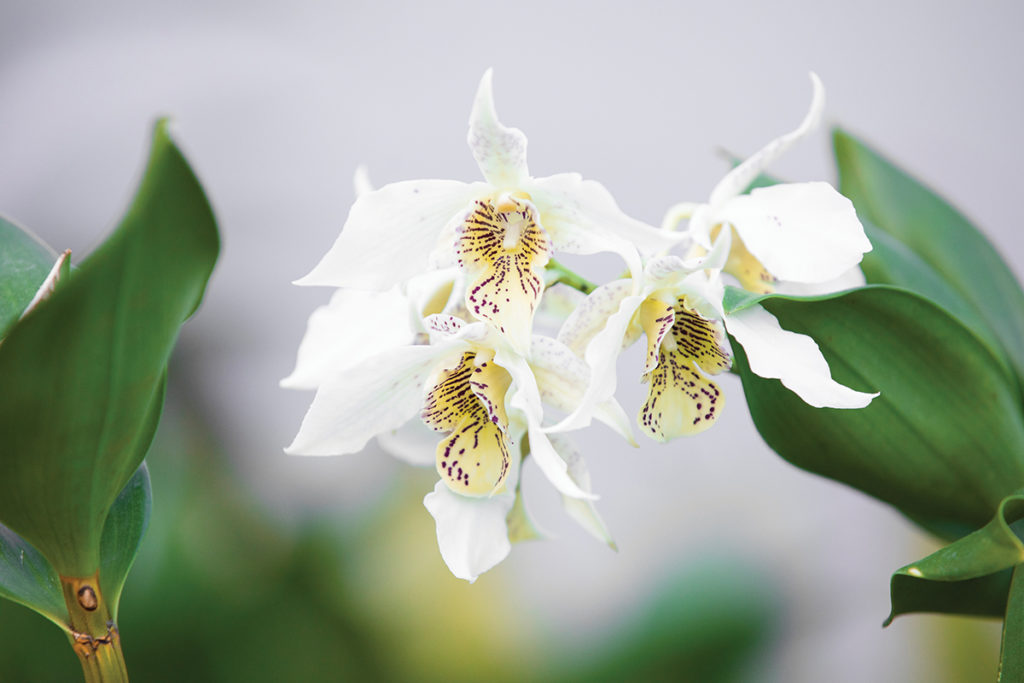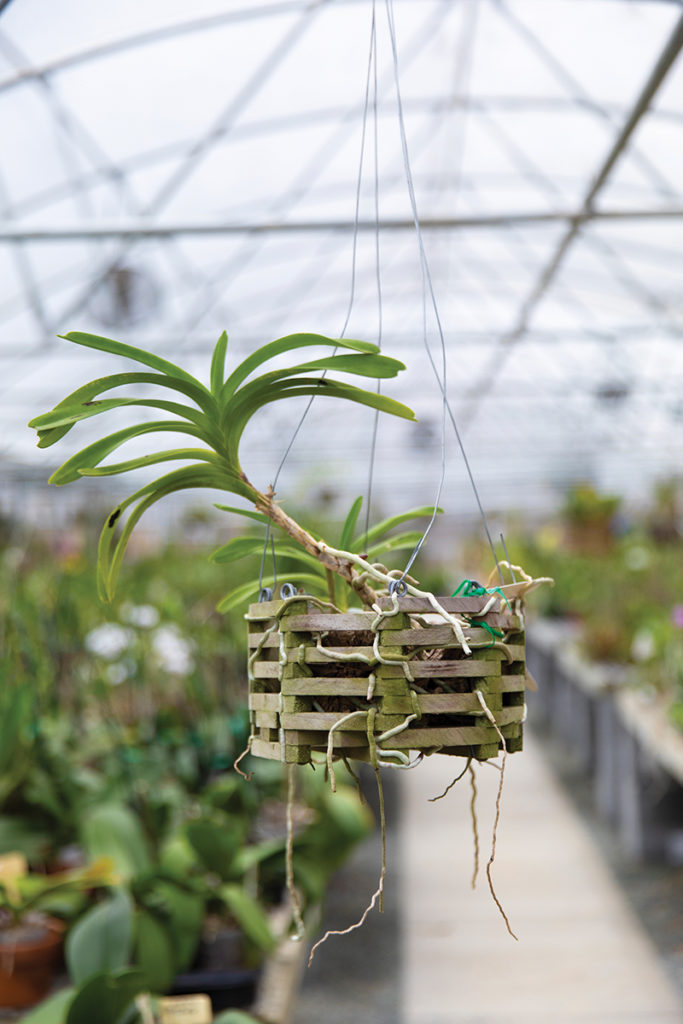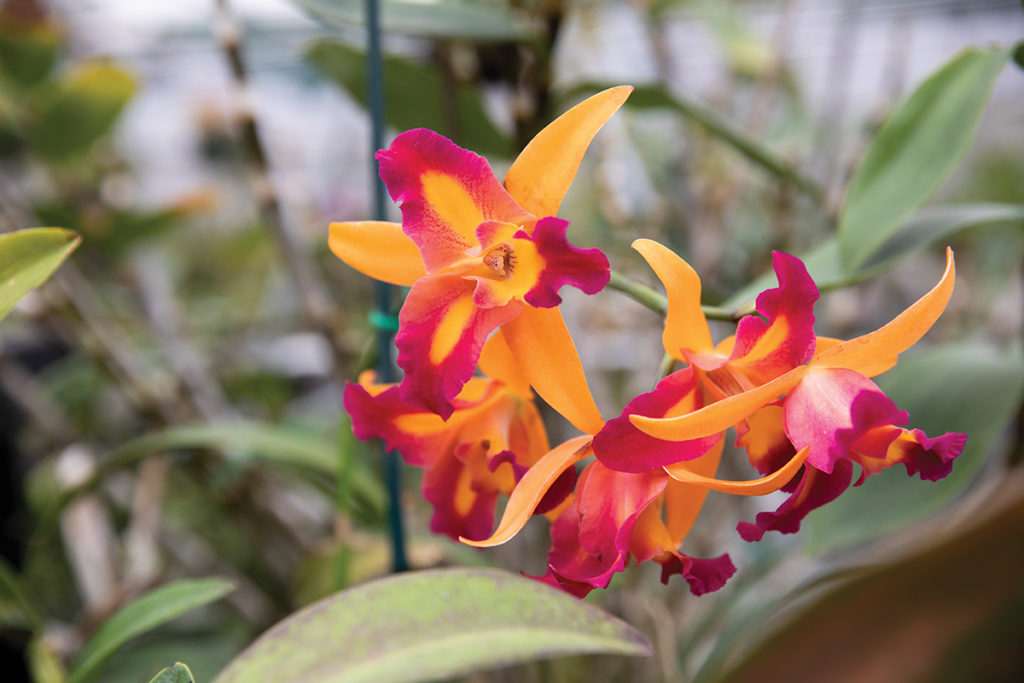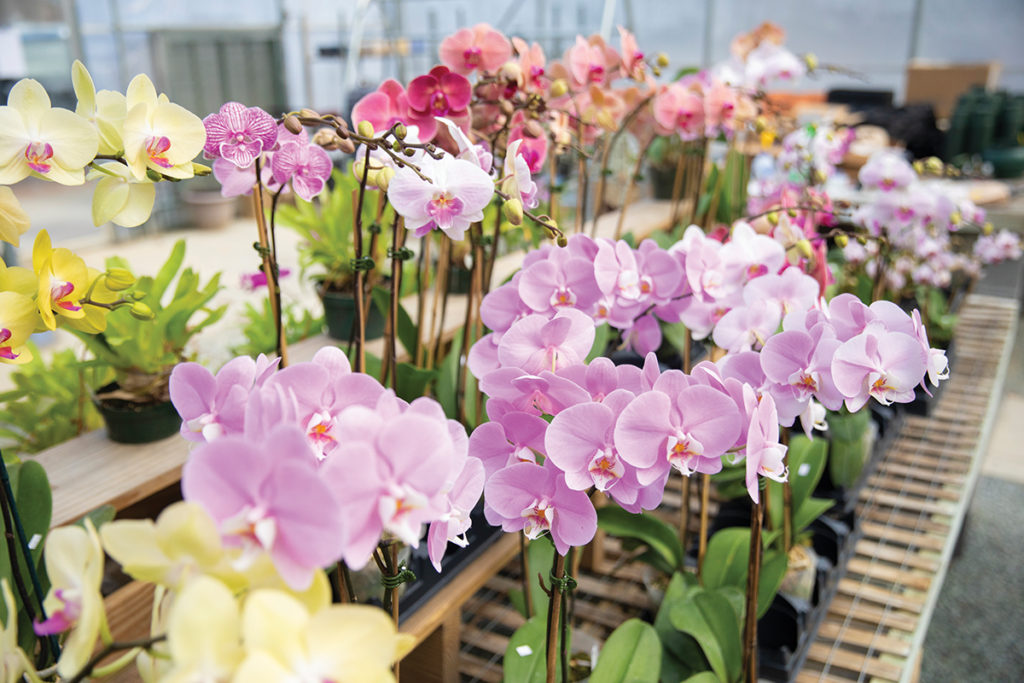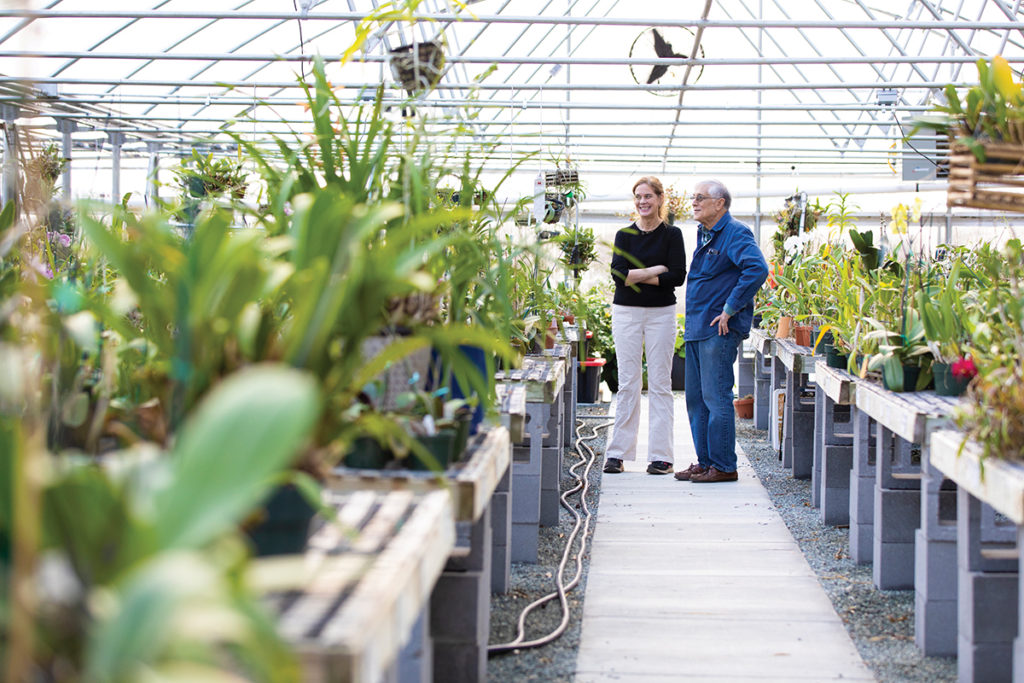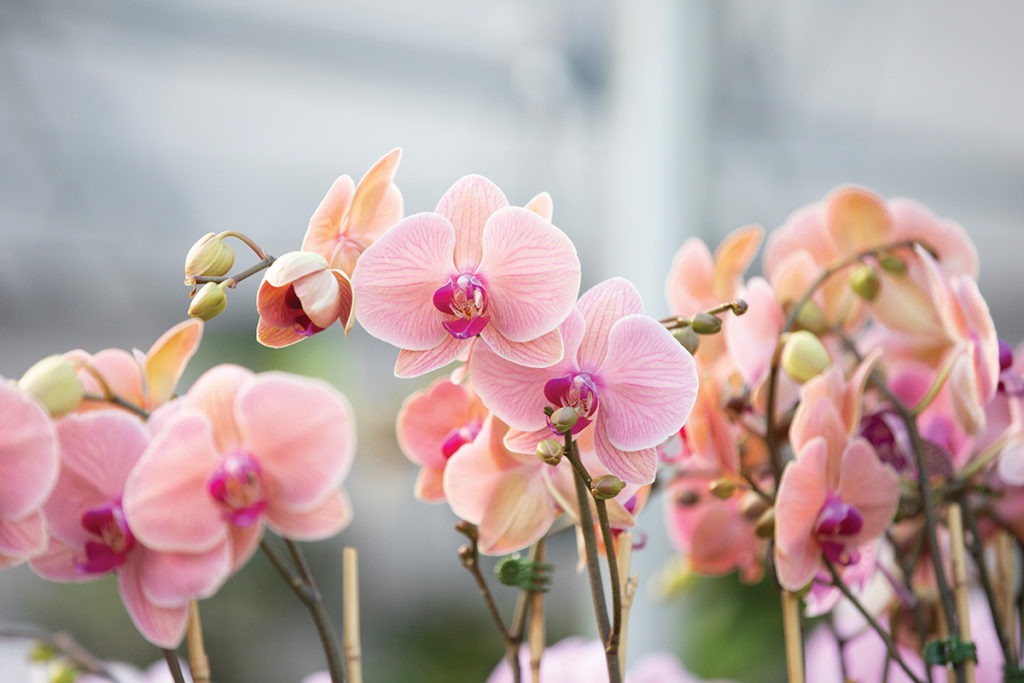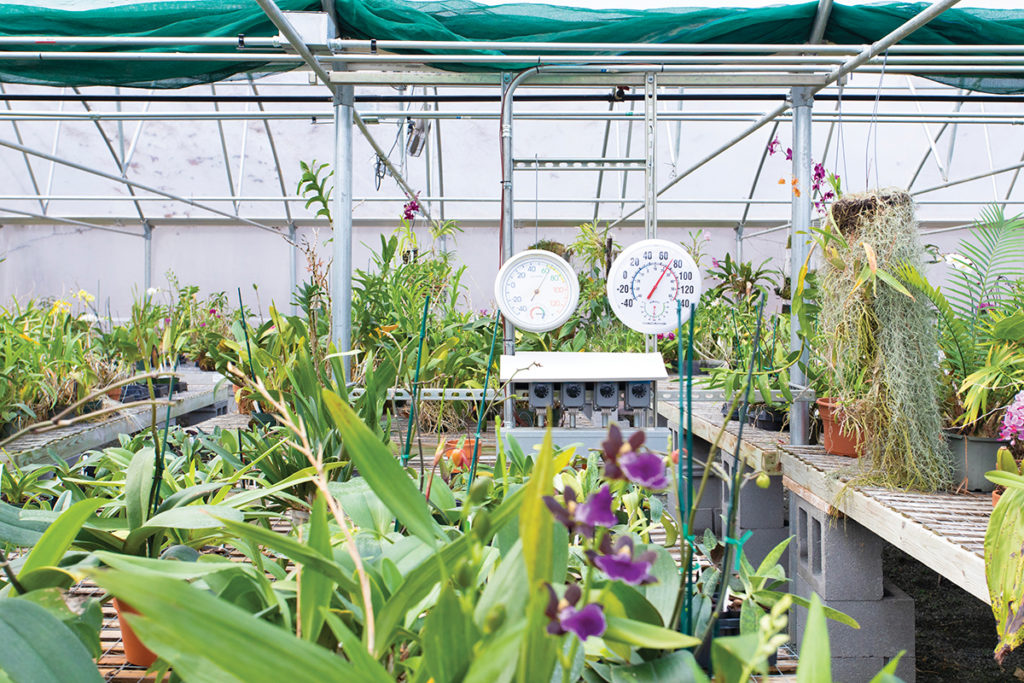Before these exotic blooms were widely available, this Raleigh woman carved out a niche business importing and caring for orchids.
by Katherine Snow Smith | photography by Taylor McDonald
Inside an airy greenhouse, fans hum and a cool mist falls. Here, hundreds of orchids sit waist-high on wood pallets; others are suspended from metal rods, clinging to hunks of bark. Some boast the flowers that draw in enthusiasts, in subtle shades of coral and rose, or brilliant gold or scarlet.
Many are not in bloom, but their leaves offer just as much variety, some broad and full, others lean and fragile.
Decades before Trader Joe’s made orchids an impulse purchase, Catherine Merriman bought the exotic blooms from Hawaii and taught friends how to care for them so they could last for decades. “Today, people can go to the grocery store and pick up an orchid that might last one or two months.
Then they just throw it away,” bemoans Merriman. “But they can outlive humans if cared for properly! Even if I have one that’s really sick, I put it in its own little area and make it better.”
Over the past three decades, Merriman has become one of the city’s leading sources, ambassadors and caretakers of orchids in Raleigh. She encountered her first ones as a child: Her grandfather was a great lover of roses, and her mother, a teacher at Wiley Elementary school, “had a great passion for orchids,” says Merriman.
At the time, just about the only place to buy the exotic plants was the former Blooming Orchids in Morrisville. “I’d go there with my mother and became completely fascinated,” she says.
Through watching her mother, teaching herself and getting tips from other enthusiasts, Merriman developed a talent for nurturing hundreds of different types of orchids. This “orchid whisperer” knows just the amount of water, light and temperature that can make each thrive.
In the early 1990s Merriman began ordering orchids from Hawaii so she could choose from a wider variety than what was available locally. At the time, this was one of the few avenues for finding orchids. Since she had to buy them in bulk, she’d sell the extras to friends. As word spread, she started an official orchid business in 1992, Raleigh Orchids.
In less than a year she had hundreds of orchids in her house. “I have been with Catherine since she opened her business,” says Liz Fentress, a longtime client. “I always send her orchids as gifts rather than cut flowers. They last longer and each is a living work of art.”
Soon after starting her business, Merriman was running out of space to display the flowers in her home. She leased commercial space on Dixie Trail and a greenhouse on Wake Forest Road. Merriman became a familiar face at UNC Rex Hospital and WakeMed, making personal deliveries of orchids to the sick. She’d even loan out her showstopper orchids as centerpieces for special events.
In addition to selling new plants, Merriman found herself boarding the fragile plants for clients in the months they weren’t in bloom, or when clients were out of town. And if a prized orchid started to yellow, she’d nurse it back to health. It’s not uncommon for her to find orphaned orchids on her doorstep. “It’s people who don’t have the patience, but still have a plant conscience,” she says.
“I can’t even throw an orchid out even if it has just one leaf, because I know it doesn’t take much to get it to bloom again.”
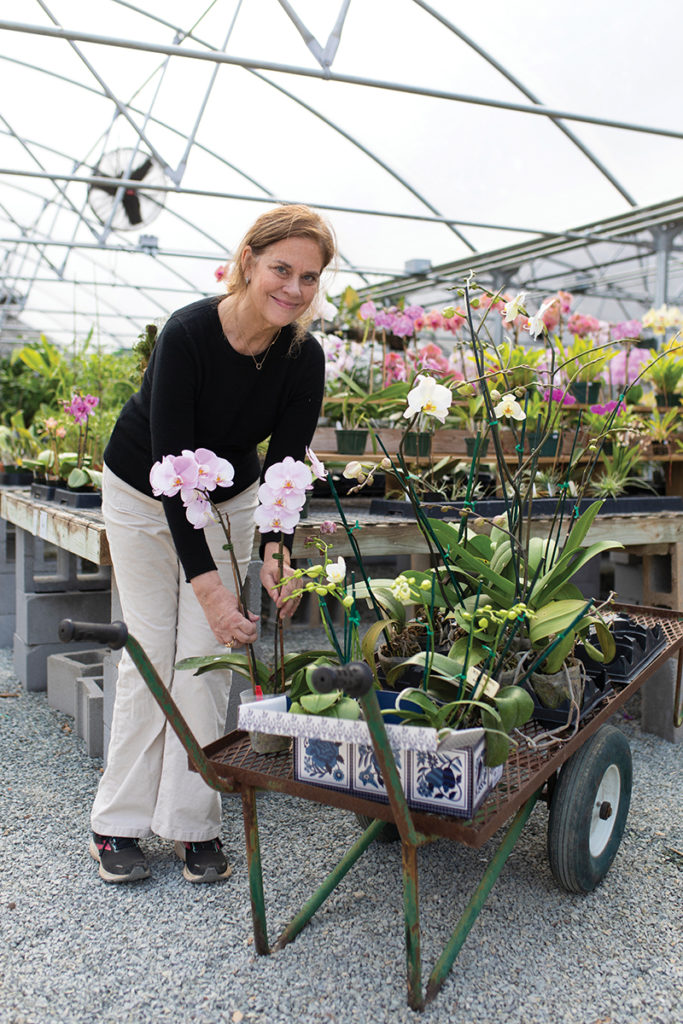
Ann Smith has been an orchid devotee for more than three decades. “My husband, Wade, developed asthma and I was told that orchids were the best flower for him because they aren’t in soil,” she says. To always have fresh flowers at home, Smith keeps about a dozen plants on display and boards the plants that are not in bloom.
She first worked with Blooming Orchids, and when they closed a few years ago, she called Merriman. “I said to Catherine, I’ve got 120 orchids and Blooming Orchids is closing in four days,” Smith remembers. “She took all of them. She’s just wonderful.”
These days, orchids can be cheaply grown overseas and imported, which has put many specialty growers in the United States out of business. Six years ago, with real estate prices rising, Merriman closed her greenhouse on Wake Forest Road and moved her orchids to The Orchid Trail in Durham.
There, she connected with Sara Gallis, who has a degree in horticulture and inherited her love of orchids from her parents, both expert gardeners. (Her father, Dr. Harry Gallis, is a member of the Triangle Orchid Society and has served as a judge for orchid shows throughout the Southeast.)
When The Orchid Trail closed in 2021, Gallis and her father were already in the process of building a 7,200-square-foot greenhouse on Cole Mill Road in Durham to create Riverwood Orchids Farm; it opened in May 2022. Now, Merriman boards her clients’ orchids there, alongside Gallis’ boarders and new orchids.
“We care for the plants by cleaning, watering, fertilizing, staking, repotting and tending to pests or fungal issues,” says Gallis. “We contact our clients when they have orchids in bloom, and text them pictures so they can decide if it’s worth the trip to pick them up.”
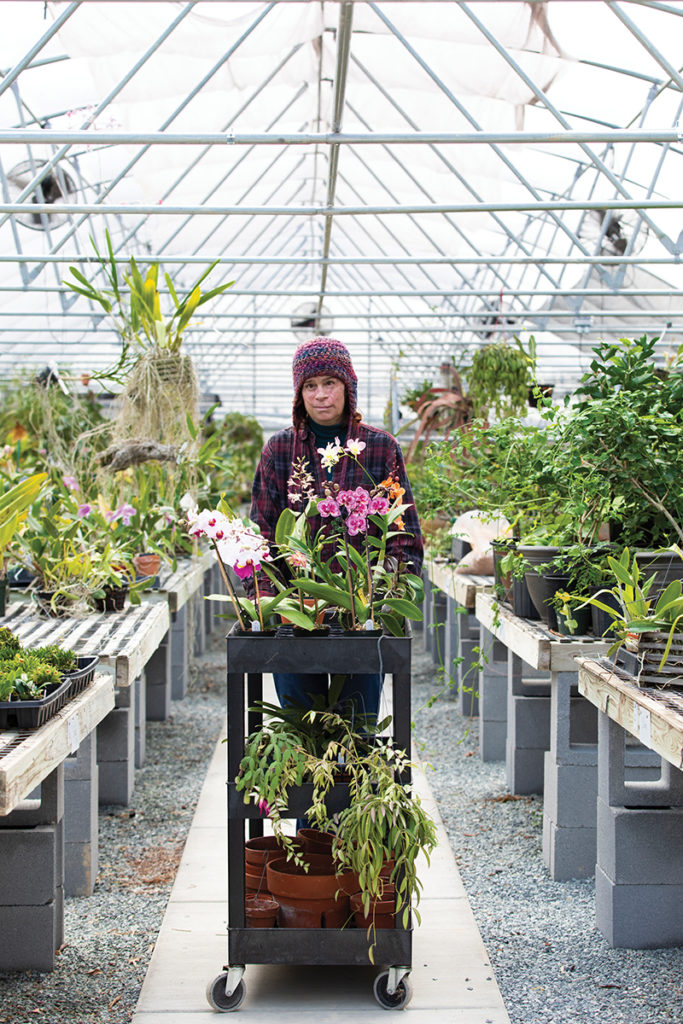
Part of what Fentress and Smith appreciate about Merriman is the care she uses to treat each bloom as a unique case. “Their leaves will wilt badly if you don’t have the right airflow, and you have to keep after your roots — if you have dead roots you have to cut them,” Merriman says.
She only waters with tepid, filtered water, targeted right at the roots with a turkey baster. Similarly, Gallis wants to debunk a common tip: “Please don’t water orchids with an ice cube! Would you want to bathe in ice water?”
These days, with her clientele aging, Merriman is winding down her business. But she’ll continue to be on hand for people who need advice on their orchids or have a plant that needs some TLC. “There are people who can bring them back, but I prefer to have Catherine take care of mine,” Smith says. “I often say they are Catherine’s orchids, but they just happen to live in my house.”
For both Merriman and Gallis, the endless variety of orchids is what turns the plants into a passion. “I love a green or white Lady Slipper. They are so small you can place them on top of a book,” she says. “And I love the white Phalaenopsis.”
The Vanda orchid, with its clusters of three, five or seven vibrant purplish blue blooms, is another at the top of Merriman’s list. Gallis particularly loves the Bulbophyllums. “They are very unique in flowering and each has a distinct fragrance,” she says. “Most are quite foul — some even smell like doggy doo or rotten flesh — but I like them anyway!”
“It makes me so happy to do this,” says Merriman. “Orchids just make people happy.”
This article originally appeared in the February 2023 issue of WALTER magazine.

